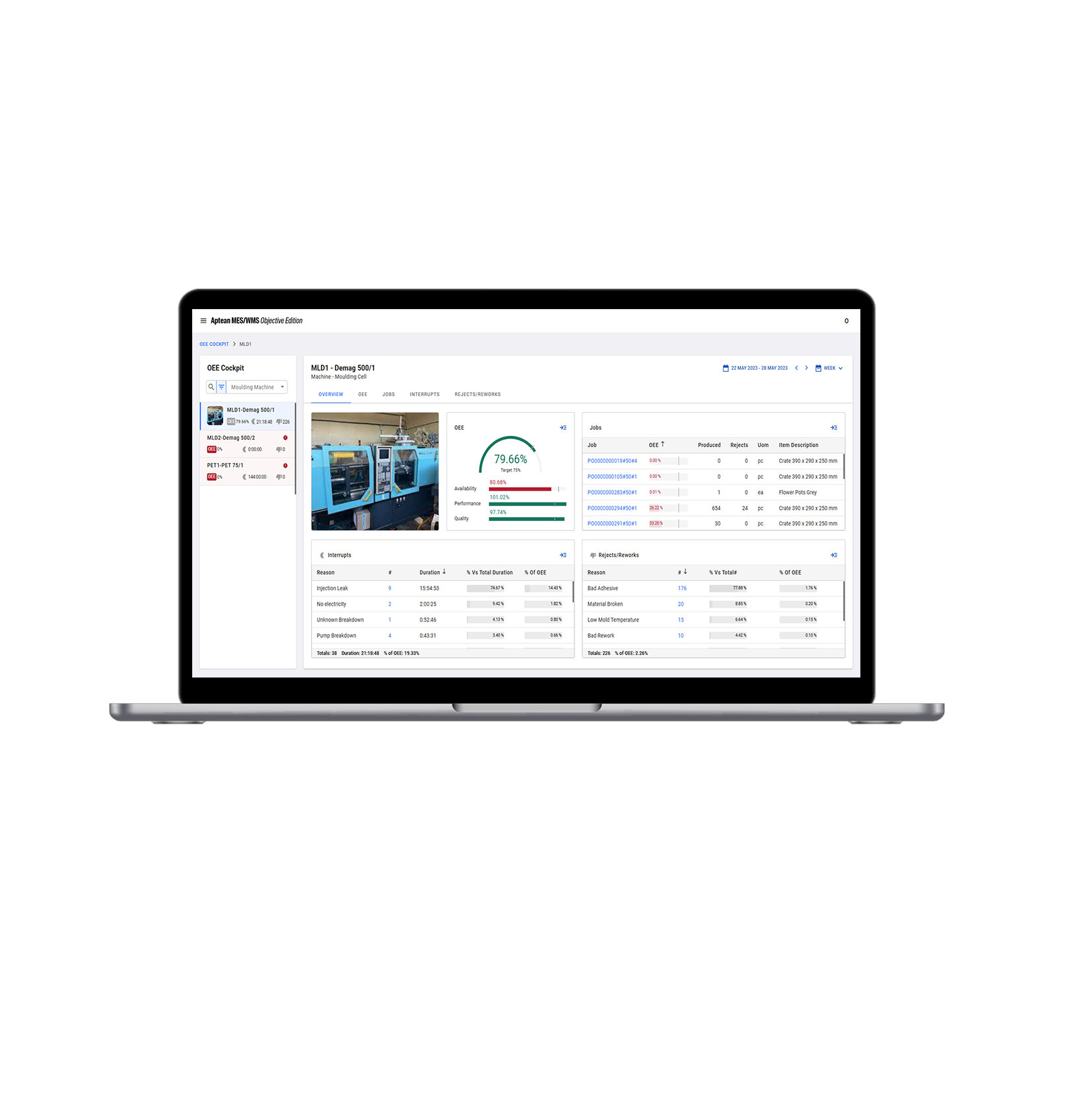How Can You Manage Demand in an Unpredictable Climate?
How Can You Manage Demand in an Unpredictable Climate?
How Can You Manage Demand in an Unpredictable Climate?
26 März 2021
 Jim Tuttle | Senior Solutions Consultant
Jim Tuttle | Senior Solutions Consultant
How many times has your manufacturing business been ‘educated’ on the importance of data in the past few years? Big data. Metadata. Machine data. Dark data. We’ve been told repeatedly that knowing your numbers inside-out is essential to make smart decisions.
It’s true: data IS important. But what do you do when information on file doesn’t give you the answer? How do you manage demand when there’s no precedent for what’s happening across your channels?
Over the past 12 months, we’ve seen how unpredictable the market can be. The pandemic turned every element of manufacturing upside down—and old insights couldn’t be applied to new behaviors. Manufacturers were forced to develop strategies on the fly, because there was no existing template to work from.
A blank play book can be daunting when you’re running a busy manufacturing business. But actually, it’s also liberating.
If you can step away from just basing processes on past templates, and manage demand through real-time information, your organization has the tools to run an agile, efficient, profit-optimized business. Regardless of whatever chaos is happening in the world around you.
COVID-19 has Changed the Conversation
Every manufacturer is juggling demand from multiple places. Today’s customer needs; tomorrow’s forecast; other manufacturing plants. The plates are spinning endlessly.
In order to rotate these plates in harmony, you need to integrate your data into one operational system. This way, every decision is contextualized—what customer deadlines do we have in play? What’s our available inventory? What are the vendor lead times on each component? Who’s working and when? The more data flows centrally through your business, the better you’ll understand – and start to anticipate – demand.
If we were having this discussion 12 months ago, the conversation would probably end here. But then COVID-19 came along.
Suddenly, everything we knew about demand was flipped on its head. Companies manufacturing toilet paper in bulk for major hospitality companies were getting asked for 4-packs to stock grocery store shelves. The office furniture market was superseded by skyrocketing demand for home desks. Ford started manufacturing medical supplies and personal protective equipment (PPE) over vehicles.
The pandemic we’ve just been through is (hopefully) a once-in-a-lifetime event. But it presented a critical lesson about agility: when your top-level forecast is thrown off course, you need to launch an immediate response.
Even better, you need to see disruption coming, before it actually hits.
When Context Changes the State of Play
Post-pandemic, data is still the key to smart decision-making, but the conversation about how we use it needs to move forward. True agility means embracing a proactive demand planning model, where your business responds to real-time insights.
It’s not enough to plan ahead for the next quarter based on what happened during the same period last year. Your organization needs to model today’s customer behavior alongside historic insights, to see how demand patterns have evolved. To understand how current context changes the state of play.
Here’s an example of why real-time analysis is paramount. At the start of the COVID-19 pandemic in March 2020, 75% of companies reported supply chain disruption. Suddenly, materials that had always taken days to arrive were taking weeks—or there was an indefinite delay on their arrival date.
Manufacturers didn’t know what was coming, or when. Many spent hours calling round vendors to get an update. Meanwhile, material delays played havoc with scheduling, impacting delivery of end products to the customer. This scenario was overwhelming for many businesses—but it doesn’t have to be.
Plan Proactively, React in Real Time
To manage demand in an unpredictable climate, manufacturers need to reach a position where you can see the real-time status on EVERYTHING in your business, and react immediately to what that data is telling you. This is best achieved through enterprise resources planning (ERP) technology.
Complete visibility gives you the opportunity to plan proactively, regardless of what’s going on. For example:
Vendor delayed by two weeks? Look at what other jobs can be accelerated while you’re waiting for materials to arrive, clearing the decks before delayed components come through.
Customer switched-up their requirements? Look at how the order change has impacted both your schedule and the profitability of that relationship. Speak to the customer about whether this is a one-off, or they’re moving in a different direction to plan for the future.
Political or economic issue impacting supply in a particular region? Look at where you can source alternative materials—and put an automatic email workflow in place that asks each vendor whether they’re running on time, so your expectations are always up-to-date.
The First Page in a Brand-New Playbook
Benjamin Franklin once wrote that in this world, nothing can be said to be certain except death and taxes. As we emerge from the most unpredictable period in living memory, this feels very true. But we want to assure manufacturers that predictability doesn’t matter.
Even if demand patterns change beyond recognition, with the right technology underpinning your business, you can still make smart decisions.
A manufacturing-specific ERP solution will enable you to contextualize past trends with present activity. It will help you react to unfolding events while proactively preparing for their impact on wider plans. And it will unite your business within one piece of software, so that everyone is on the same page. Even if that page is the first chapter of a brand-new demand planning playbook.
Aptean’s Industrial Manufacturing ERP connects businesses through one solution, so everyone can see and react to what’s going on in all operational areas, in real time. Our software empowers manufacturers to understand your current demand pipeline, business skills and material resources, to plan for future growth.
Book your free Aptean ERP demo to find out more.
Beginnen Sie noch heute mit der Transformation Ihres Unternehmens
Sie möchten Ihr industrielles Fertigungsunternehmen weiterentwickeln? Wir helfen Ihnen gerne dabei.



